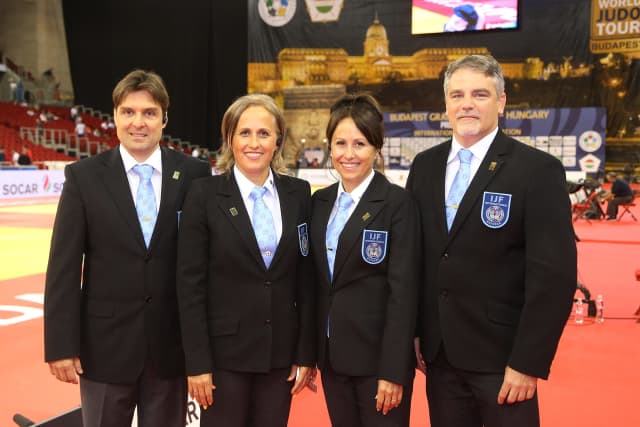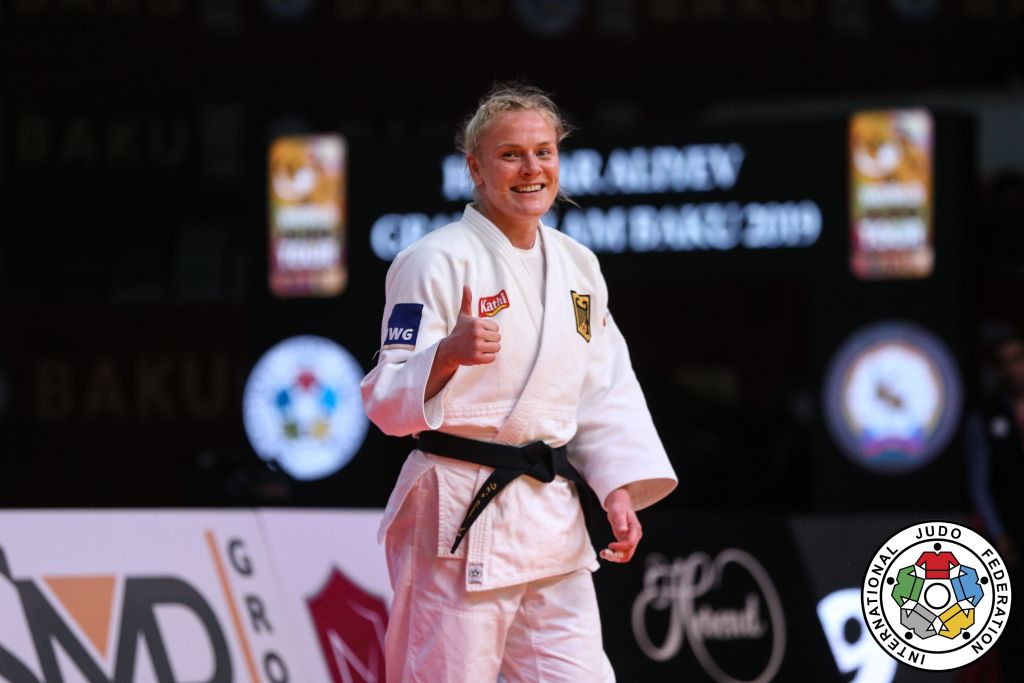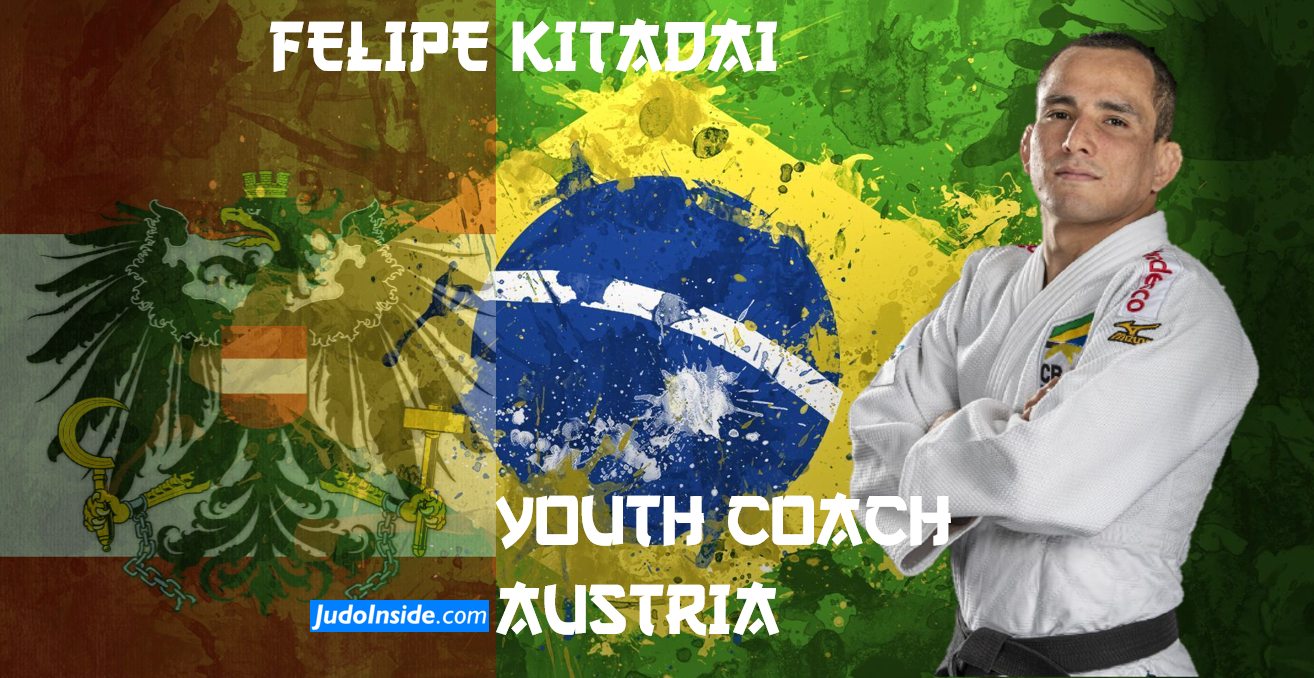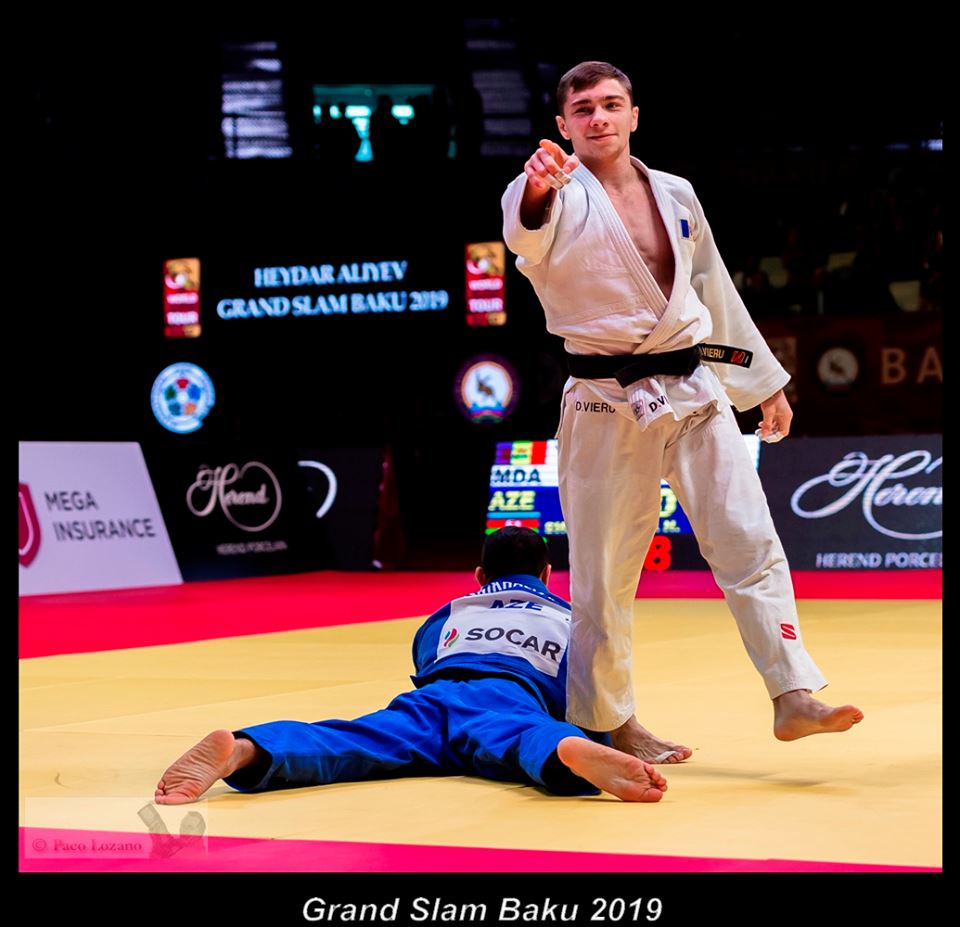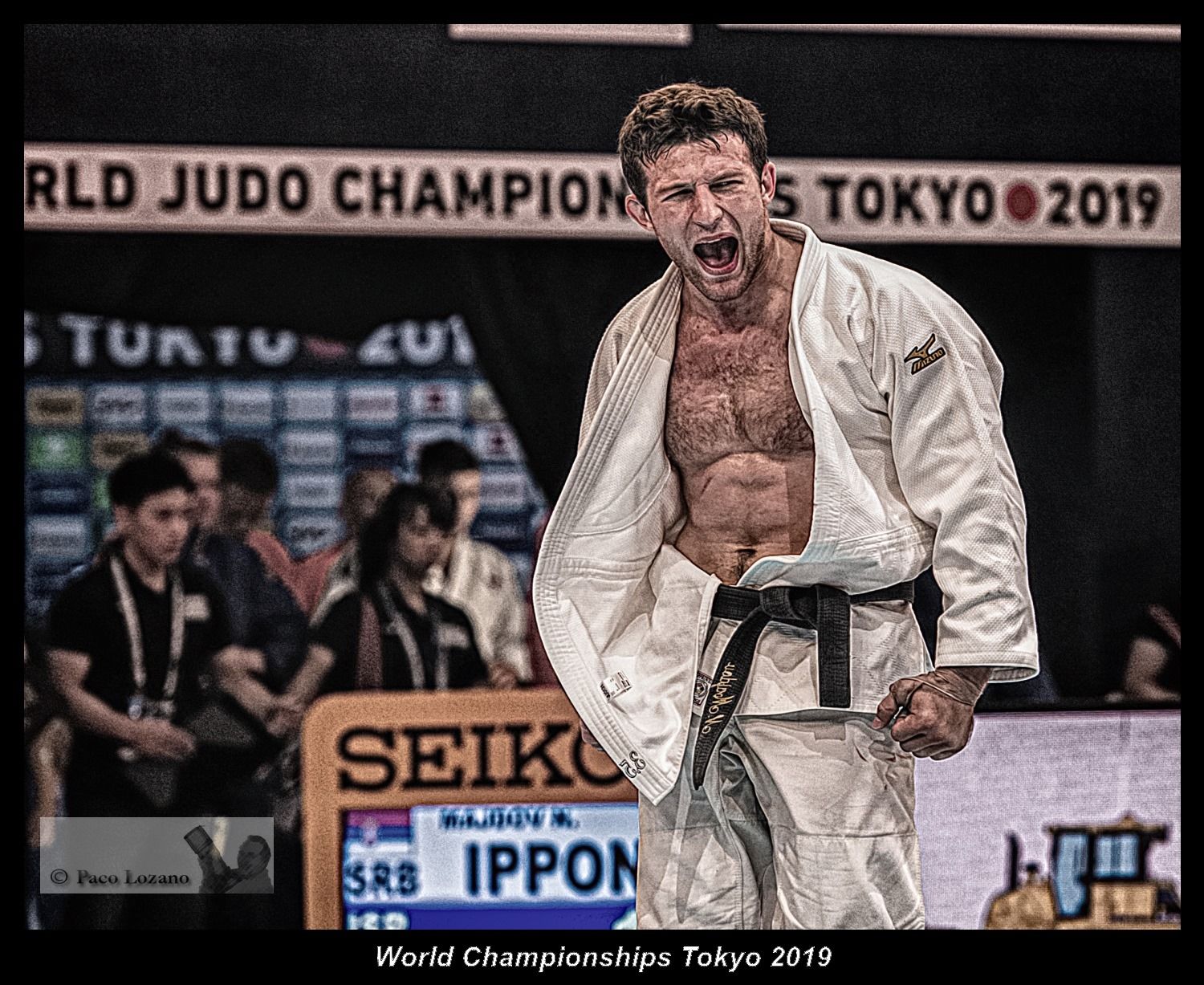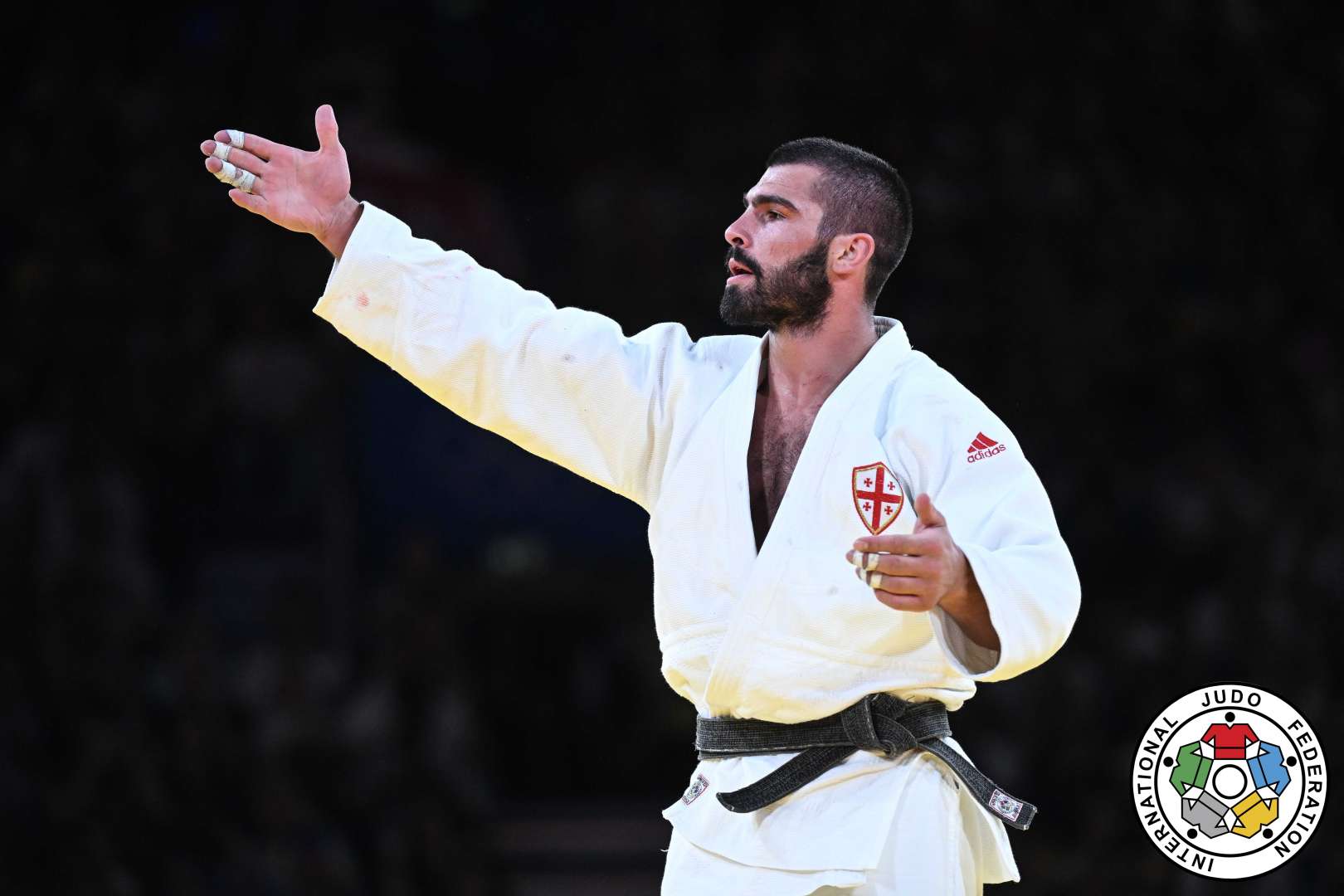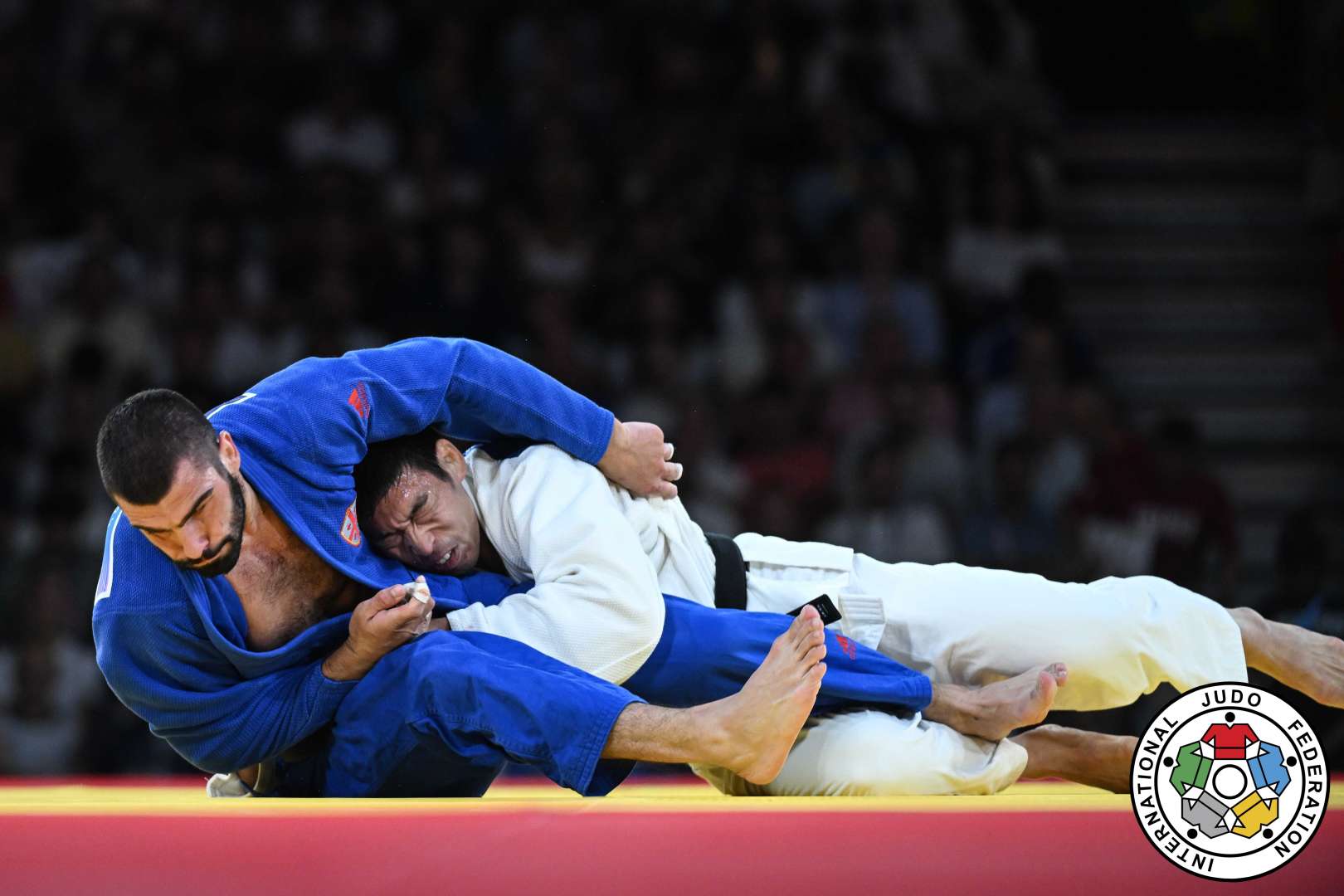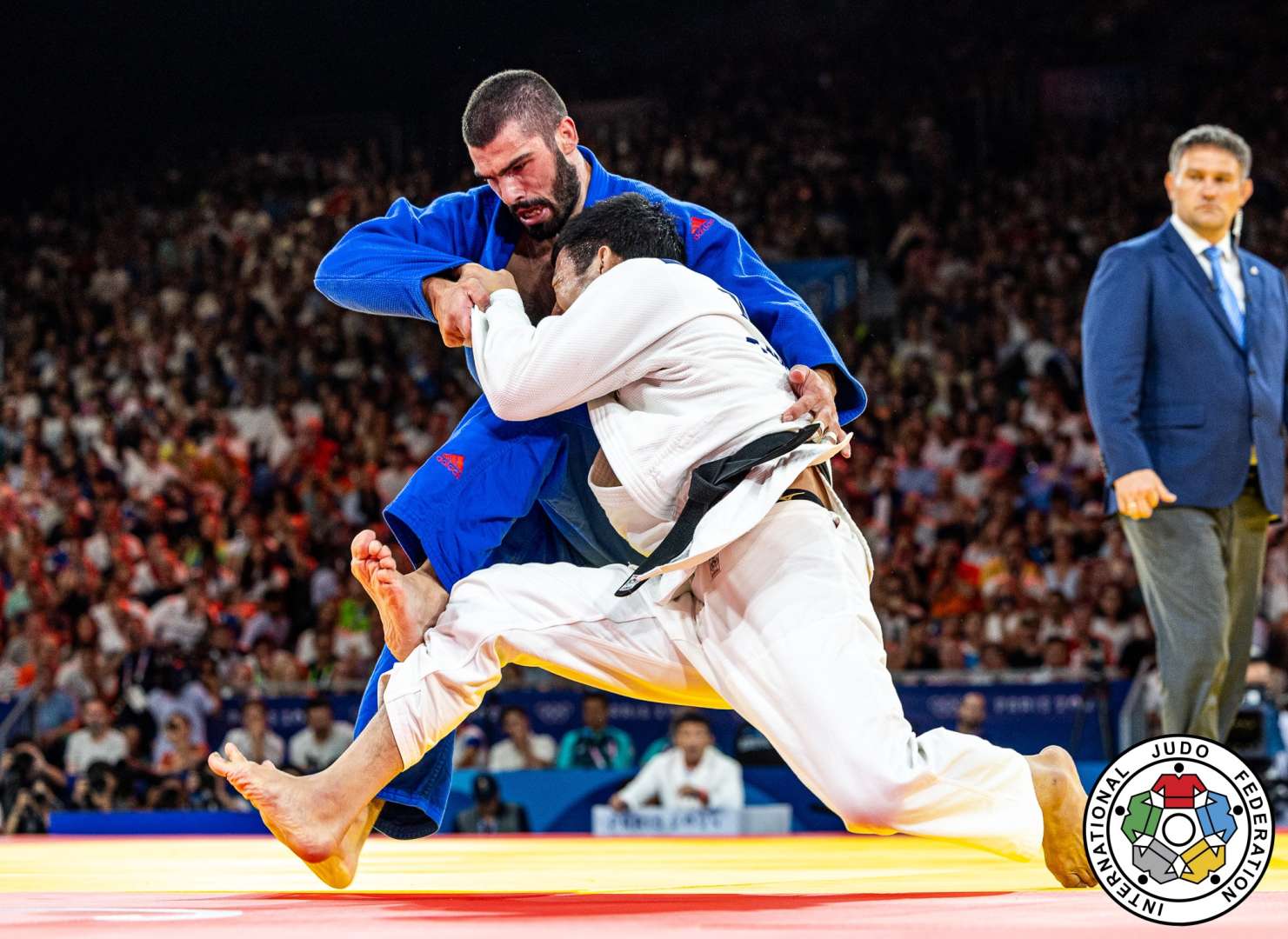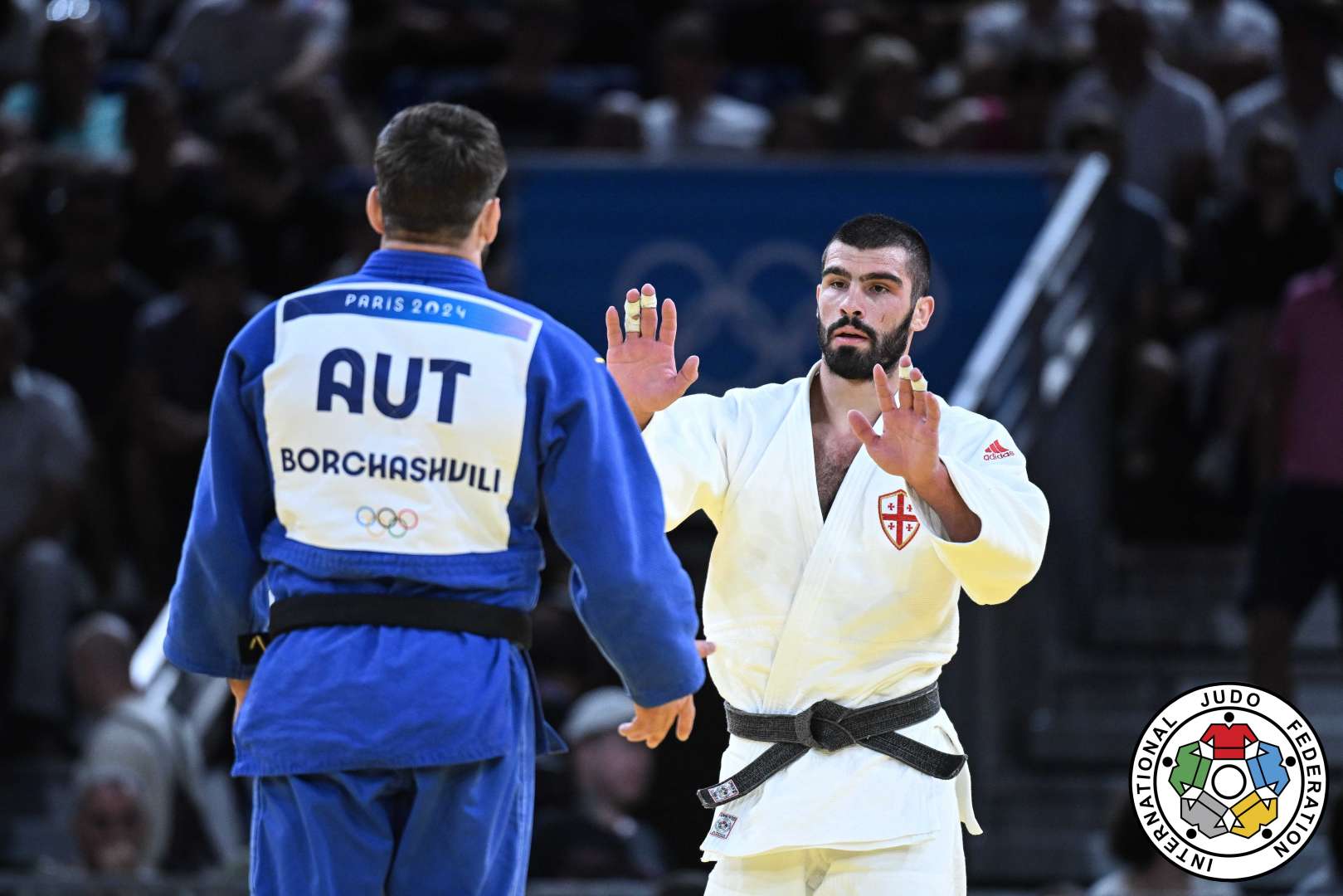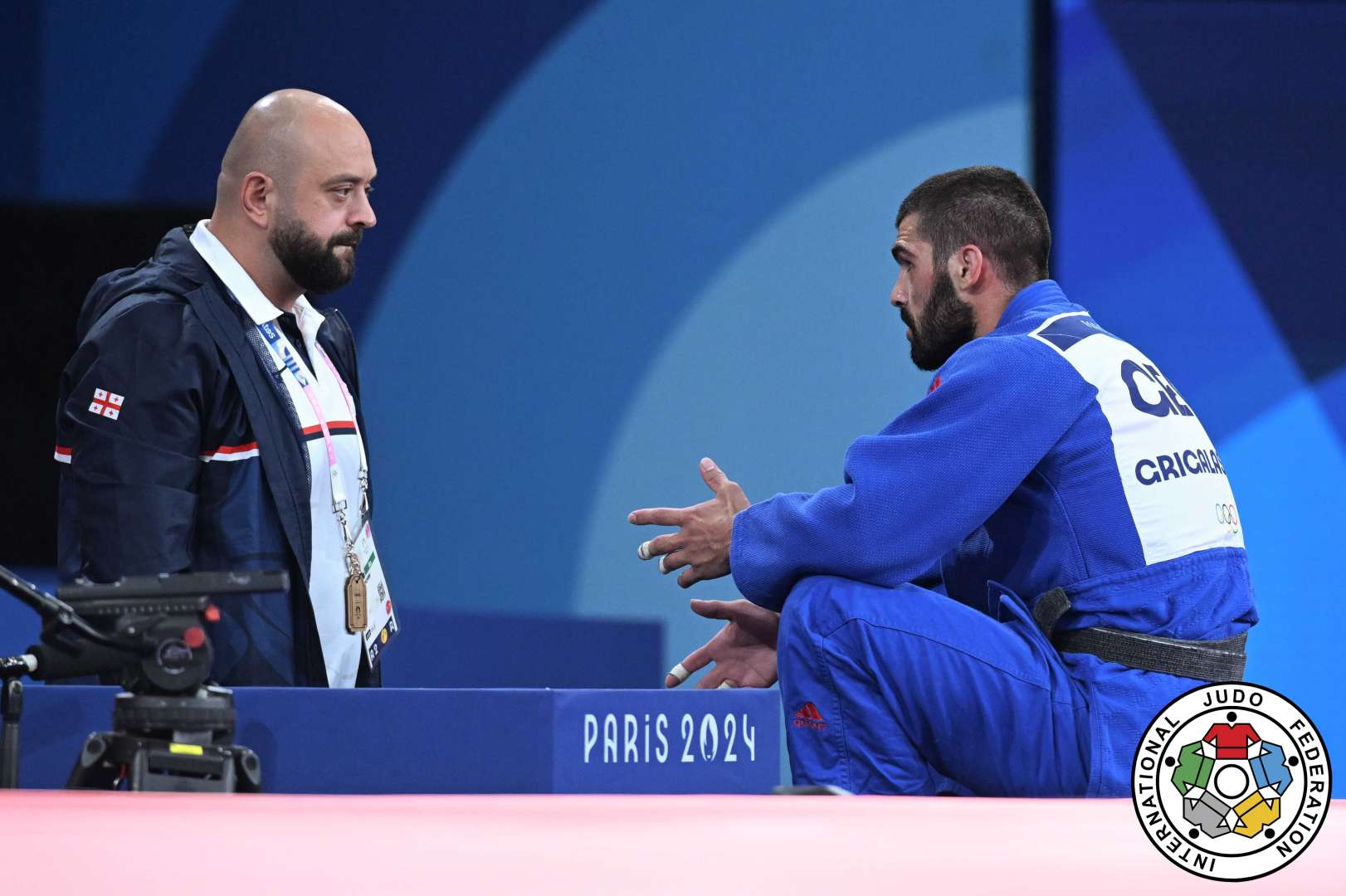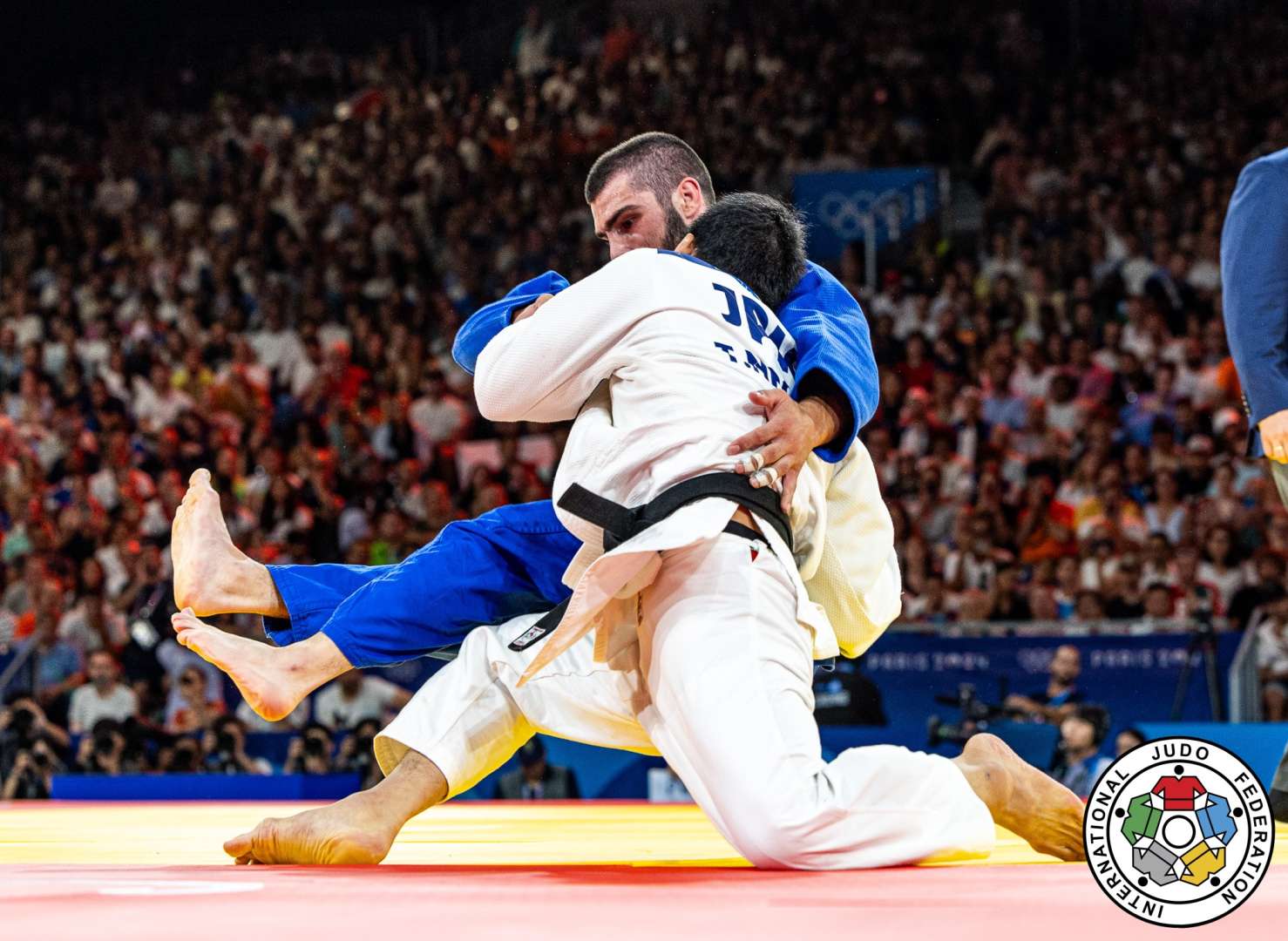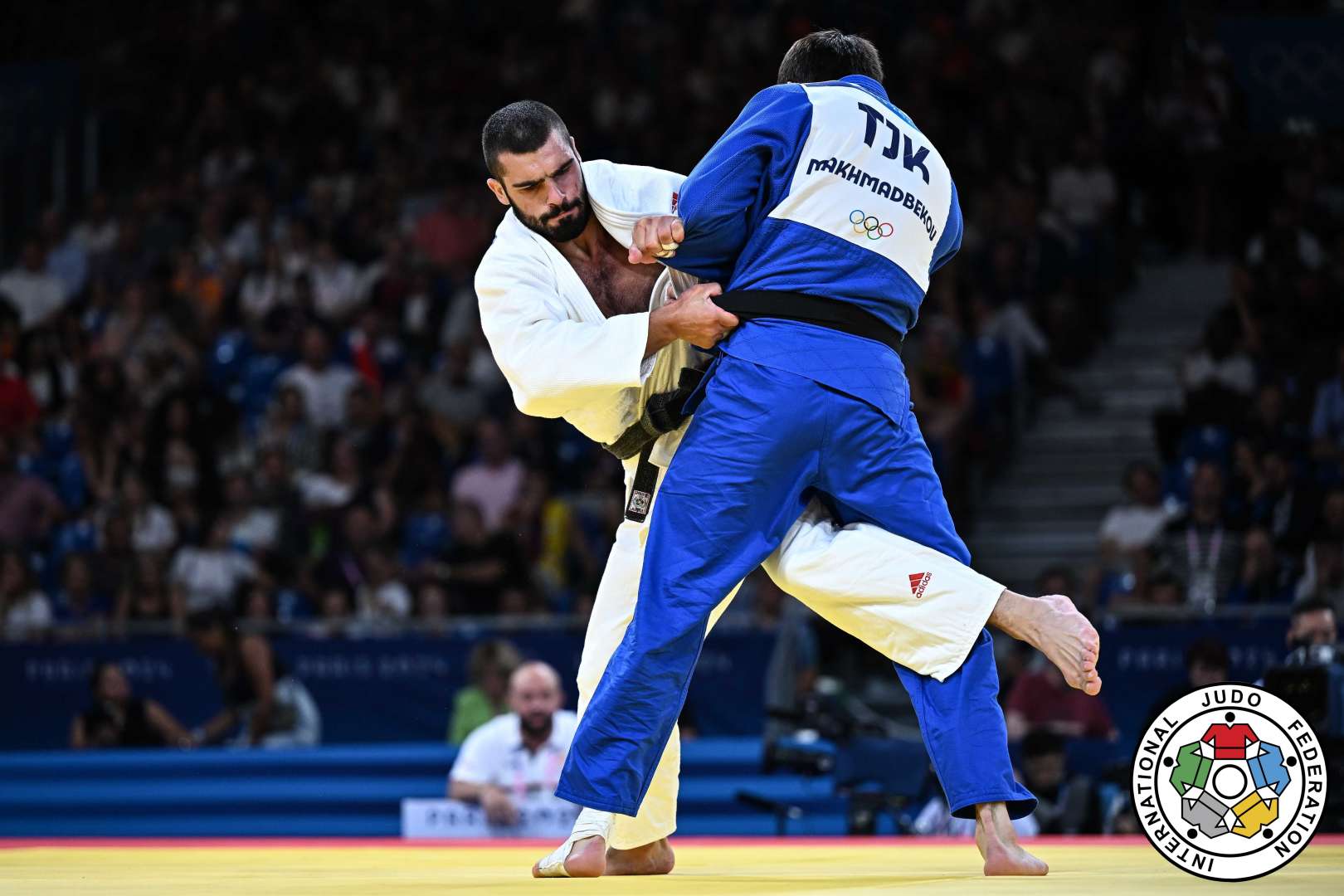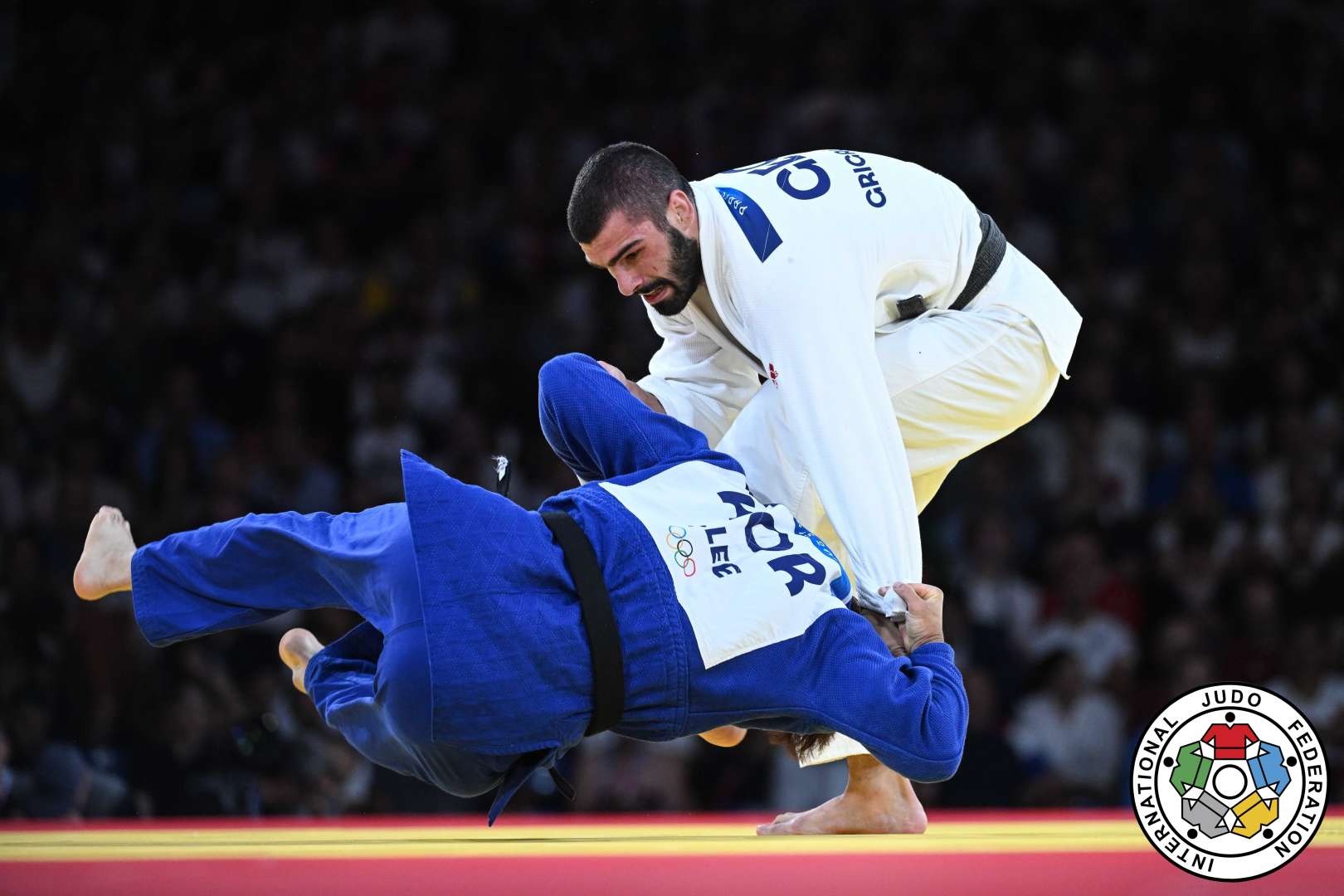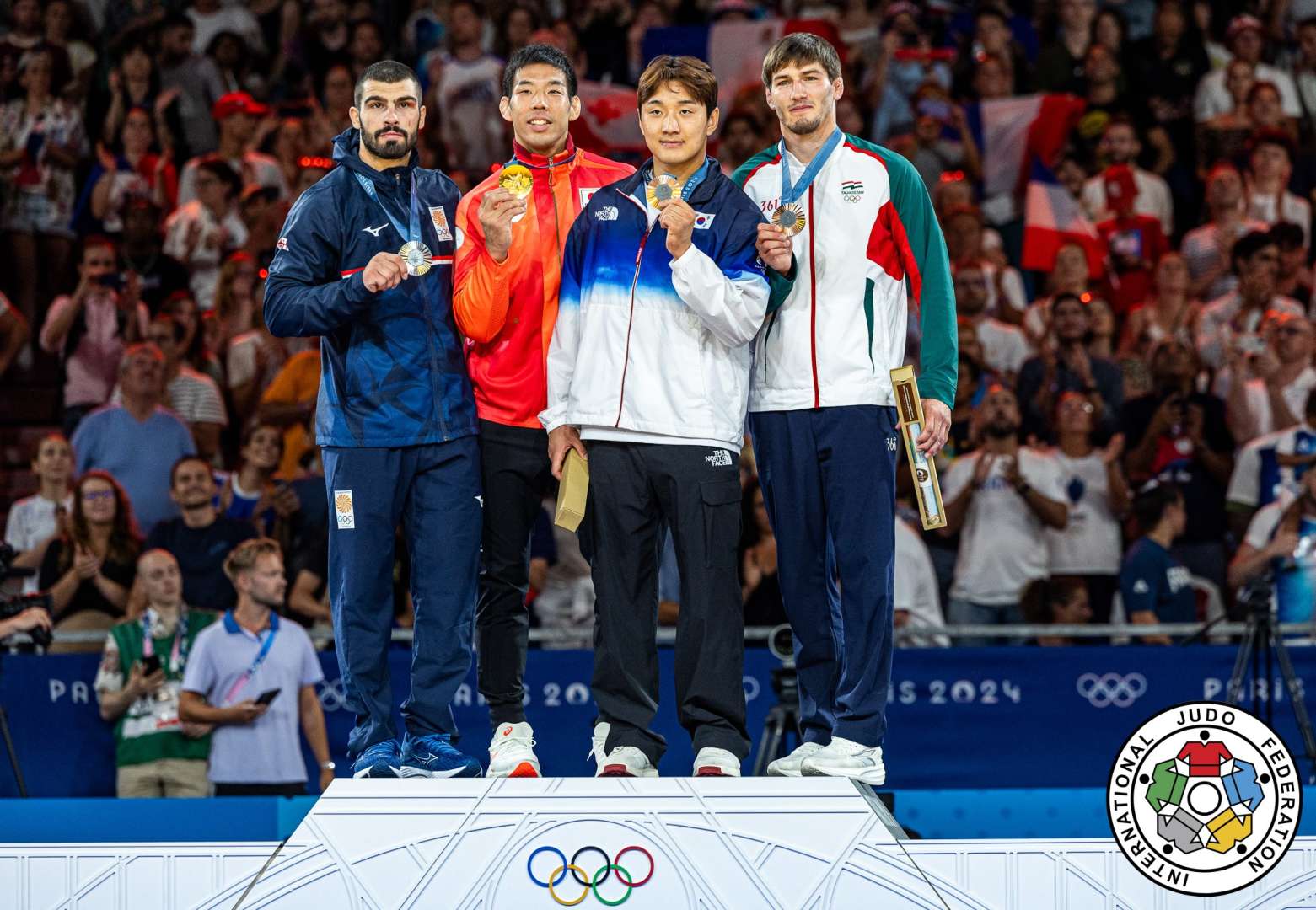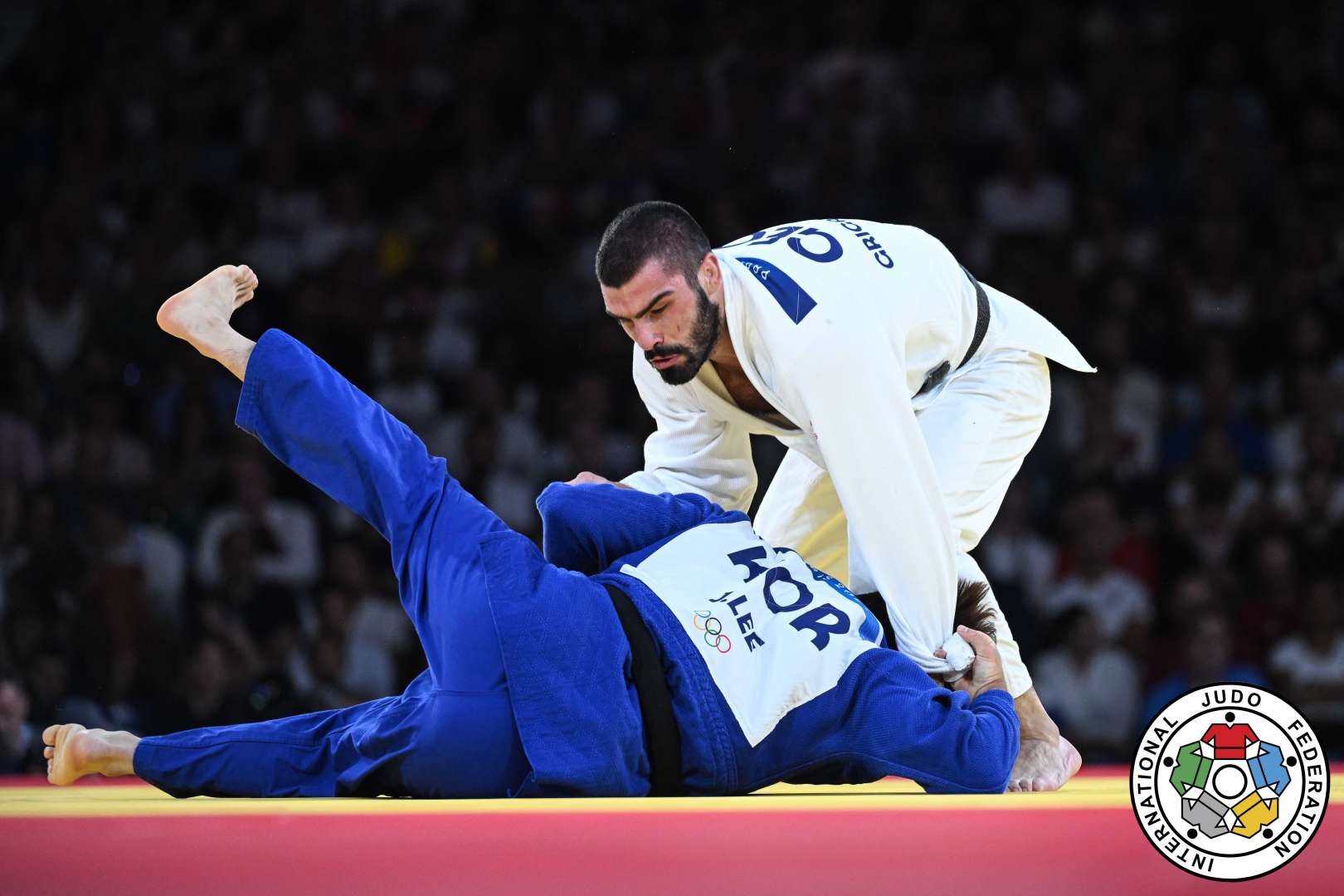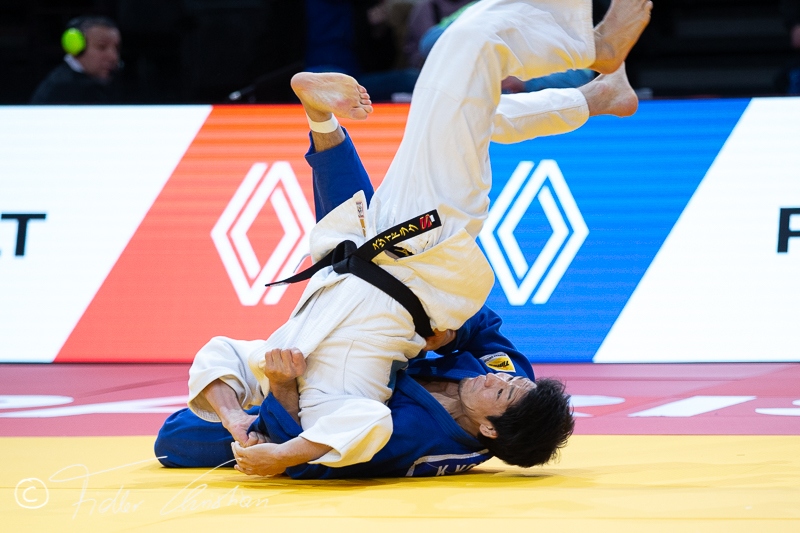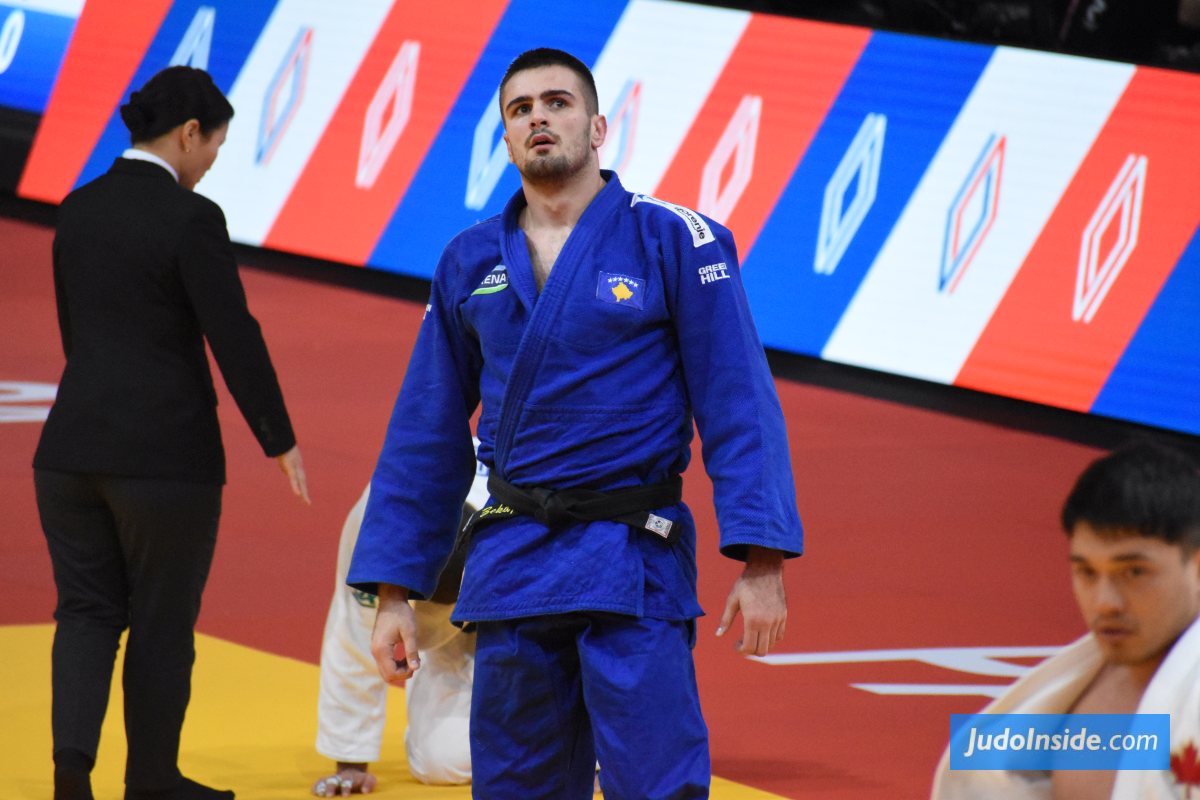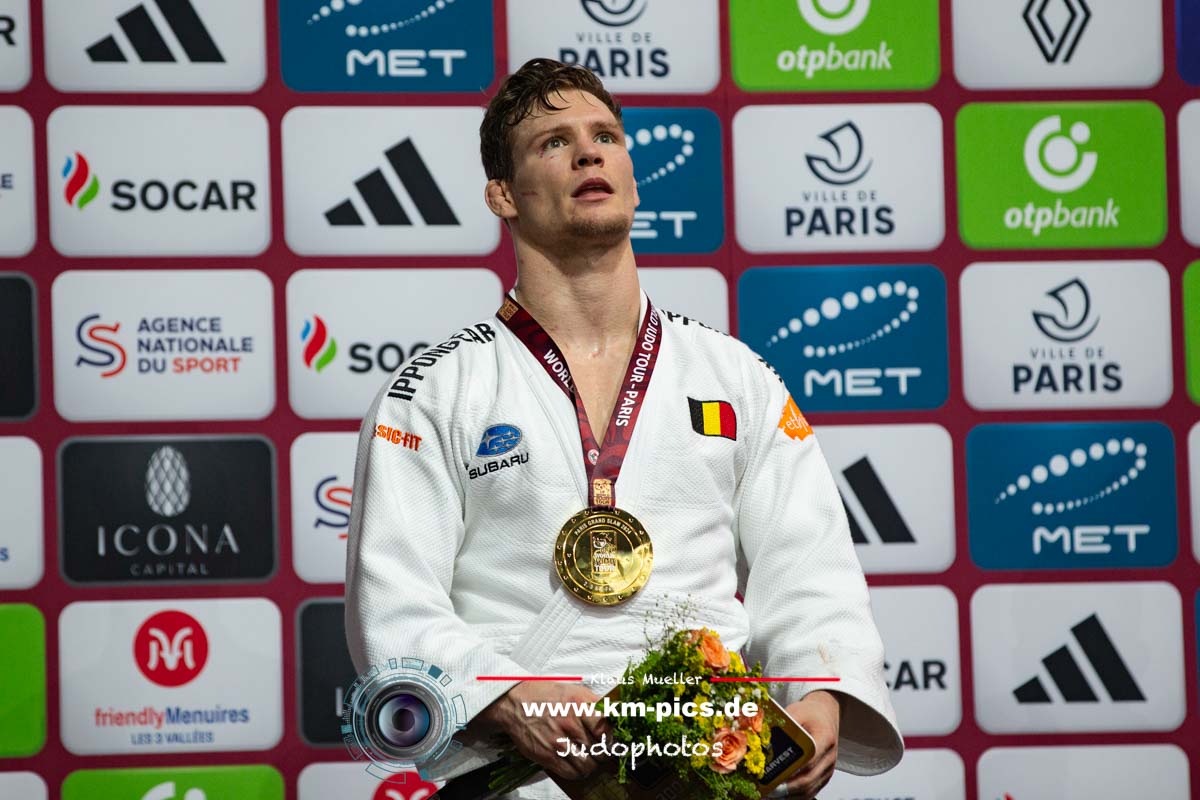Being a Judo referee is not the most popular job
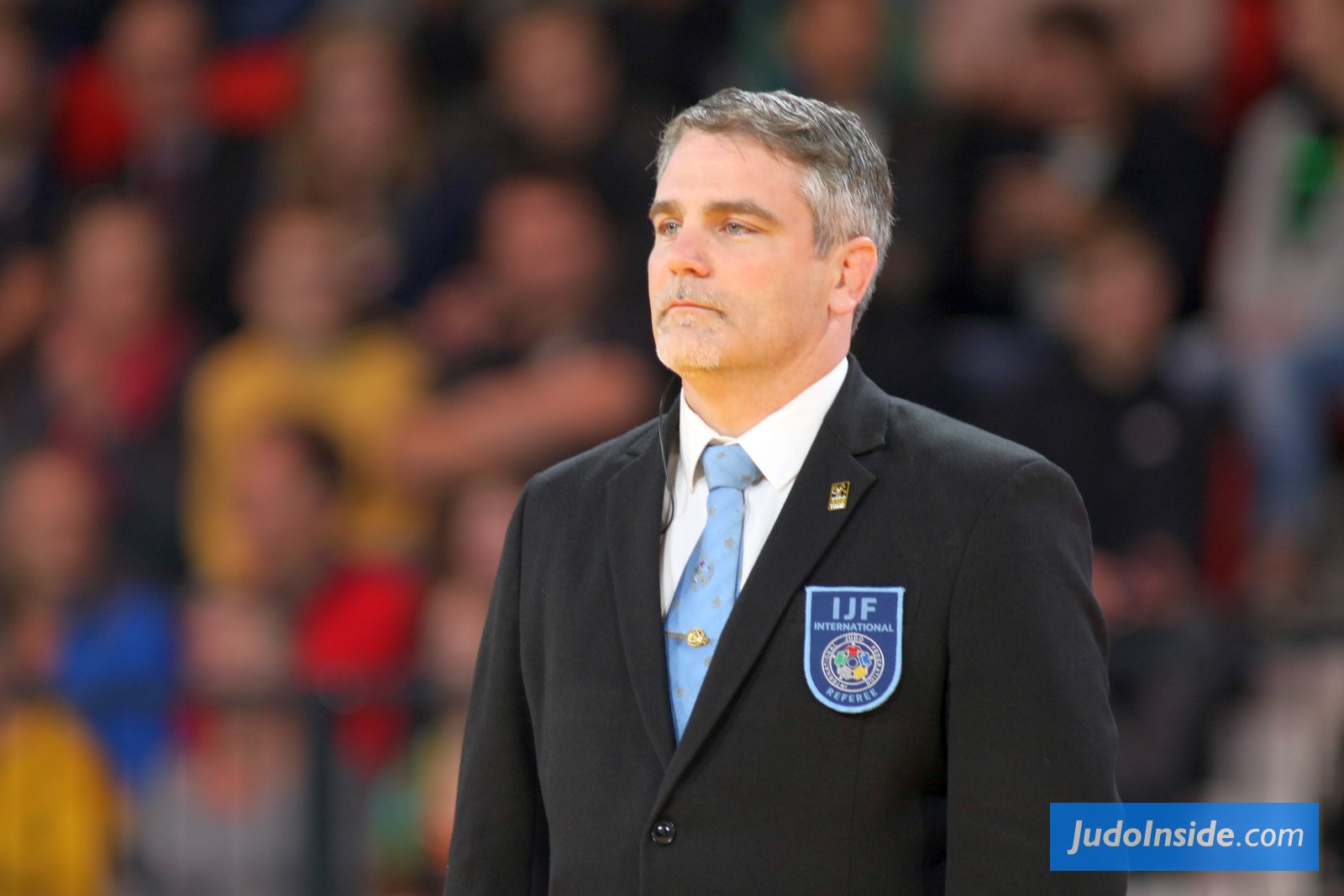
 13 May 2019 15:25
13 May 2019 15:25
 Christian Pierre - IJF
Christian Pierre - IJF
 JudoInside.com - Hans van Essen / judo news, results and photos
JudoInside.com - Hans van Essen / judo news, results and photos
Balazs Gosztonyi of Hungary is one of the IJF referees of the dark force. The referees, the one you shouldn’t see, but who should lead the contest in the best way. Sometimes they have to make the hard decisions, rational or with help of the video footage, sometimes clear, sometimes hard to understand. Beautiful ippons or in a rare occasion when a phone drops out of the judogi.
The referee is one who is always in the lead but rather in the background. The IJF sat down with one of those examples in the IJF World Tour.
“I started refereeing when I was 18 years old,” Balazs recalls. “We had some great examples back home and when our club coach asked us to follow the referee course to help out the club we did. It was a good decision. We were also welcomed by the older generation of referees. We became a great group of friends once we started refereeing and going to all these tournaments.”
Progressing through the ranks from being a local club referee to becoming a top IJF referee is a long road. “First of all, you must like what you do. Being a referee is not a popular job. I always mention we are the ‘dark force’ on the tatami, being dressed in black suits,” Balazs jokes. “It takes time to become a good referee. It’s a long learning curve from refereeing at your club tournament gradually progressing to a regional, national and finally the international level. It’s also time consuming but I’m lucky, because the closest persons from my entourage are all in the same boat. My sister-in-law and her husband are both international referees and more important, my wife is also an international referee. Actually, we met at judo tournaments, so there is also a love story intertwingled,” the referee laughs.
Imagine refereeing an IJF Worlds final. The two judokas ready to clash, a boisterous crowd cheering madly … and then you, the referee right in the middle. There must be a high stress level? “When it comes down to do your job, it doesn’t really matter,” says Balazs. “Be it a small tournament or when the stakes are very high. You have two judokas in front of you. You fade out the surroundings and the concentration level peaks on those two athletes. The level might be different, but judo is judo. The competitors will be passionate and fight to win. Of course, there is some pressure. But this also helps us to immediately switch off everything and fully focus on the fight we are about to officiate.”
This week Balazs officiated at the Grand Slam in Baku and IBSA World Cup.
Read the rest of the interview at the site of the IJF
 like
like
 share
share

| Result | City | Date |
|---|---|---|
| 2 | Paris | 2024 |
| 1 | Abu Dhabi | 2024 |
| 1 | Zagreb | 2024 |
| 3 | Belgrade | 2023 |
| 2 | Montpellier | 2023 |







